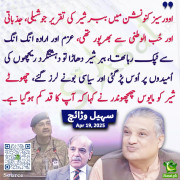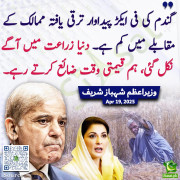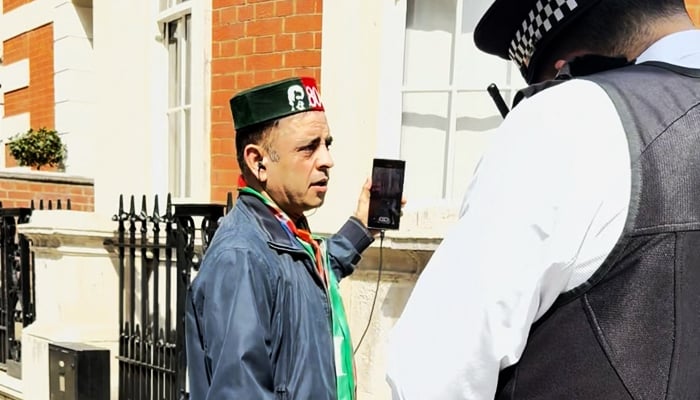M Ali Khan
Minister (2k+ posts)

The Fall of Bangladesh’s Sheikh Hasina Is a Warning to the World
by Arif Rafiq
With the resignation of Prime Minister Sheikh Hasina today, Bangladesh finds itself at a political crossroads once again. The country is in a state of limbo.
Emergency rule has yet to be formally declared. The army chief, General Waker-uz-Zaman, has said that such a scenario could be avoided if order is restored. He also announced that an interim government would be formed.
Bangladesh is no stranger to political upheaval. It has seen multiple military coups and the assassination of its two most important early leaders, Sheikh Mujibur Rahman and Ziaur Rahman. (Sheikh Mujib was the founder of Bangladesh and Hasina’s father. General Zia was the husband of Hasina’s chief rival, Khaleda Zia, who leads the Bangladesh Nationalist Party.)
But Hasina’s latest stint in power was unusually long, lasting 15 years. As Prof. Ali Riaz of Illinois State University explained in our podcast in January, Hasina sought to establish one-party rule, decimating the opposition, media, and civil society while also neutering the army. With a rapidly growing economy, Hasina seemed invincible — until she wasn’t.
Bangladesh has often been hailed in the international press as a development success story, driven by a perceived policy emphasis on human development and its growing garment industry. (Bangladesh is the world’s second-largest apparel exporter, following China.)
But that story of economic advancement, often described as the Bangladesh Paradox given the weakness of its institutions, was always one filled with gaps.
Back in January, Dr. Riaz explained to me why Bangladesh wasn’t quite the paradox it was made out to be and was actually in many ways a conventional kleptocracy — and one that was shakier than many had assumed. His analysis was indeed very prescient. It’s a must-listen for those seeking greater context on Hasina’s fall.
The End of the Paradox
After 15 years of Hasina’s rule, Bangladesh isn’t much of an outlier. It resembles a large swath of the world: a low- or middle-income state where an incestuous elite dominates through a marriage of crony capitalism and coercion.Until today, Bangladesh had an “elected” authoritarian ruler who spoke the language of developmentalism while enriching herself and her kin and cronies, who are dispersed across the West.
- Hasina’s son, Sajeeb Joy Wazed, is an “entrepreneur” based in northern Virginia while also serving — until today — as a “technology advisor” to his mother.
- Her niece, Tulip Siddiq, is an MP with Britain’s Labour Party. She previously described herself as a part of the European “lobbying unit and election strategy team” for Hasina’s Awami League and maintains close ties to the party.
- Hasina’s sister and right-hand woman, Sheikh Rehana — Siddiq’s mother — lived rent-free in a London apartment owned by a senior executive of a state-aligned Bangladeshi conglomerate, through an offshore shell company. That company, BEXIMCO, and its executives have received numerous concessions from the government, including loan rescheduling by state-owned banks, according to Netra News. A co-founder of BEXIMCO reportedly fled with Hasina today.
They pay garment workers some of the lowest wages in the world to manufacture disposable fast fashion for major global brands like H&M and Zara. The Bangladeshi state rigs the game in their favor, including by deploying specialized police forces at export processing zones to intimidate and repress low-paid garment workers and unions.
The Canary in the Coal Mine
Hasina, like many authoritarian rulers since the Arab Spring, constructed a techno-surveillance state, deploying Israeli spyware to prevent critical forces from coalescing. That worked to keep the country’s once-robust civil society at bay — until it didn’t.Hasina owes her fall ultimately to the economy. Since last year, inflation has hovered at close to 10 percent, nearly a decade high. Persistently high youth unemployment — over 15 percent today — fueled street protests against a Supreme Court decision to restore government job quotas for individuals with family ties to Hasina’s Awami League. Hasina ultimately chose to respond with the stick, which only fueled the fire. The Bangladesh Army decided it would no longer fight its own people to keep an unpopular dictator in power.
Deteriorating macroeconomic conditions meant that Hasina had fewer carrots to offer. Developing countries like Bangladesh have been hit hard by back-to-back global crises: the COVID pandemic and the Russia-Ukraine war, which sent fuel prices soaring, triggering an inflationary cycle worldwide.
Hasina’s Bangladesh is a cautionary tale for the developing world. In many respects, it was a country doing things right: ostensibly pursuing an export-led model of growth, like the East Asian tigers, beginning with low-cost textiles.
Bangladesh excelled at that initial stage. But it remains a one-trick pony. Apparel makes up over 80 percent of Bangladesh’s exports by value. Not only has it failed to diversify its exports, the complexity of its products has remained largely unchanged.
The growth of Bangladesh’s garment exports has been driven mainly by low wages — not technical advancement. It mainly manufactures low-cost items like t-shirts and relies on imported fuel, material, and fabric. Bangladesh’s foreign exchange reserves have declined by around half since the Russian invasion of Ukraine, with just under three months of import cover today — among the factors that make its fuel supply unreliable.
Apparel exports to the United States and European Union — Bangladesh’s largest markets — have fallen as inflation hits consumers of its low-cost t-shirts and other garments hard. And global brands are looking to replace Bangladeshi suppliers with those elsewhere, including Vietnam.
Bangladesh has made remarkable human development gains since independence in 1971, overcoming the dire predictions of nearly all observers. But its bull run is petering out. In this, Bangladesh is not alone. The pathways to becoming a high-income country are narrowing for the developing world, a new World Bank study warns. Middle-income countries are growing at a much slower rate this decade compared to the previous two.
The World Bank says, “Middle-income countries will have to work miracles—not only to lift themselves up to high-income status but also to shift away from carbon-intensive growth paths that will lead to environmental ruin.”
The development playbook will have to be revised, if not rewritten. That takes time for elites to come to terms with and then actualize into policy.
But the clock is ticking. The Bangladesh protests that brought down Hasina echo unrest in recent months and years in Kenya, Pakistan, and Sri Lanka. And we saw the same type of discontent result in the underperformance of Narendra Modi’s Bharatiya Janata Party in India’s general elections earlier this year and the rise to power of Andrés Manuel López Obrador — also known as AMLO in Mexico in 2018.
Everyone wants to be the next China. But there may not be another one. Elites in the developing world will have to wake up to the new reality. Or they may find themselves fleeing angry, jobless youth and joining Hasina in London.
Arif Rafiq is the editor of Globely News. Rafiq has contributed commentary and analysis on global issues for publications such as Foreign Affairs, Foreign Policy, the New Republic, the New York Times, and POLITICO Magazine. He has appeared on numerous broadcast outlets, including Al Jazeera English, the BBC World Service, CNN International, and National Public Radio.

The Fall of Bangladesh’s Sheikh Hasina Is a Warning to the World
As paths to prosperity narrow for developing countries, Sheikh Hasina's downfall may be a harbinger of greater global instability.


































